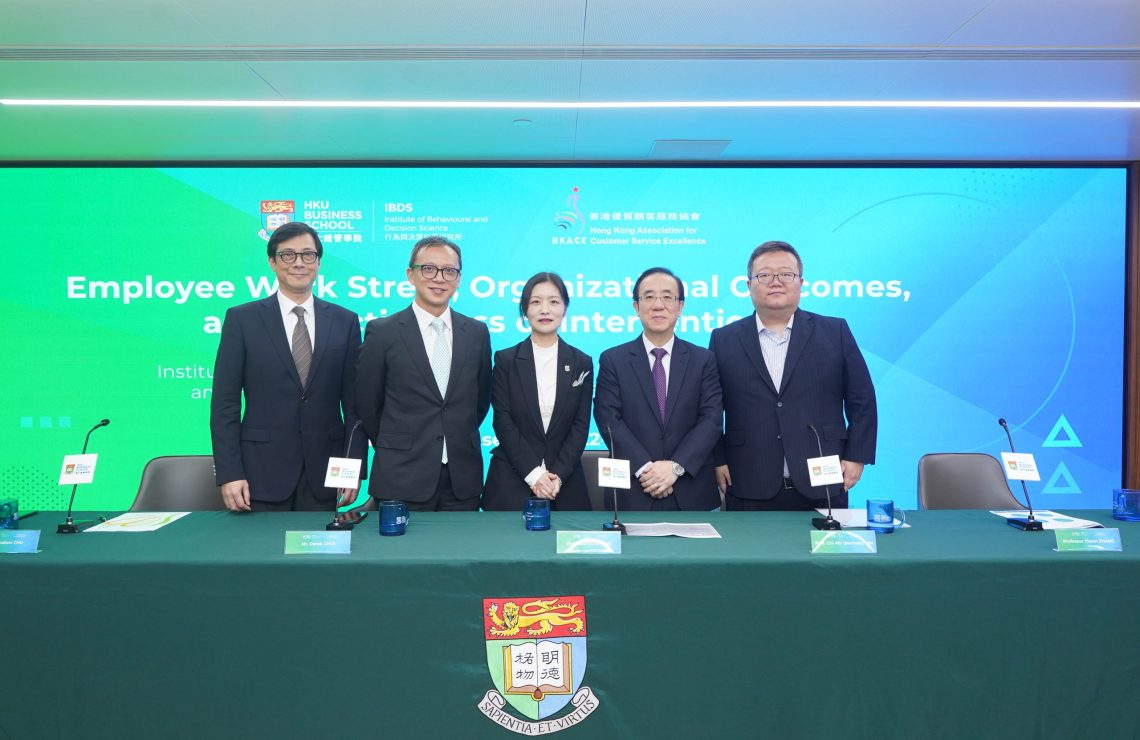
HKU Business School Research on Employee Stress
Institute of Behavioural and Decision Science (IBDS) at HKU Business School (HKUBS), in collaboration with the Hong Kong Association for Customer Service Excellence (HKACE), conducted a series of new research studies covering approximately 1,000 employees from the service industry across both the public and private sectors in Hong Kong. The studies found that the employee burnout rate has increased by 1.7 times compared to pre-pandemic levels.
Happy employees, happy customers: The studies focused on identifying the stressors contributing to employee burnout and evaluating the effectiveness of various workplace interventions. The current findings suggest that some innovative interventions can support employees’ mental health, including significantly reducing stress and improving wellbeing, which in turn enhances customer experiences and drives organisational success. The studies also offer recommendations for implementing supportive policies to mitigate stress and foster a healthier, more engaged workforce.
Key Research Findings
Employee Stress and Burnout
One of the most striking findings is the high level of burnout among employees in the post-pandemic period. Nearly half of those surveyed (43.6%) reported experiencing burnout frequently. Hindrance stressors (e.g., role ambiguity, conflicting demand) rather than challenge stressors (e.g., increased workload, tight deadlines) are mostly responsible for the significant increase in burnout and significant drop in job satisfaction. These stressors have a destructive impact not just on employees’ mental health but also on their ability to deliver quality service to customers.
Effectiveness of Interventions
The research found that employees of organisations that consistently implement preventive and organizational interventions—such as burnout and mental health seminar and flexible human resource policies—report less stress/burnout and higher job satisfaction and organizational commitment. However, some existing interventions, such as priority goal setting and multi-tasking skill development, have not delivered the expected results or even have a backfiring effect, indicating the need for re-evaluation of their effectiveness.
Sector-Specific Insights
Employees in the private sector, especially those working in customer-facing industries such as retail and banking, reported higher levels of stress compared to their public-sector counterparts. The research also found that employees in non-managerial/frontline positions showed lower levels of job satisfaction and organisational commitment, but targeted interventions could address these problems and significantly improve their wellbeing and performance.
Importance of Innovative Solutions for Enhancing Employee Wellbeing
The research emphasises that employees’ perceptions of company interventions also matter. It is essential to prioritise employee well-being, particularly in customer-centric workplaces facing manpower shortages. Interventions perceived with more supports from the management could have higher expected effectiveness.
According to the study, the effectiveness of company interventions varies, with some common measures, such as general skill training and employee appreciation, showing limited impact. This suggests the need for companies to innovate their strategies to effectively support their employees. Traditional interventions may not meet employees’ needs; therefore, organizations should strive to understand their employees better. Innovative interventions such as flexible work assignments, supportive HR policies, positive corporate culture, and providing meaningful benefits and rewards are more valued by employees. This not only improves employee wellbeing but also leads to higher customer satisfaction and organisational success.
Professor Chi Kin (Bennett) YIM, Stelux Professor in Marketing of HKU Business School, said, “We believe that employee wellbeing is a critical driver of business performance, particularly in sectors where customer service is a key differentiator. Our research shows that reducing stress and supporting mental health through innovative interventions allows employees to perform at their best, which directly benefits customers and strengthens the overall business. This is no longer just a human resources issue—it’s a strategic imperative for organisations looking to thrive in today’s competitive landscape.”
Mr. Derek CHOI, Chairman of Hong Kong Association for Customer Service Excellence, said, “The link between employee wellbeing and customer service excellence is undeniable. At the Hong Kong Association for Customer Service Excellence, we have long advocated for businesses to prioritise their employees’ mental health by embracing innovative approaches as a way to ensure high standards of customer service. This research reinforces what we’ve always known: when employees feel supported by the company, they are more engaged, more committed, and better equipped to meet the needs of customers, even under the most demanding environments.”
4 Recommended Principles for Businesses
Based on the research findings, HKUBS and HKACE are calling on businesses, especially Hong Kong’s service industry, to take actions to address employee stress and improve wellbeing by adopting innovative interventions guided by the following principles:
Purpose: Align Employee Engagement with Organisational Purpose
Companies should emphasise the purpose of their organisation and actively involve employees in shaping corporate culture, for example, focus on corporate social responsibility (CSR). Engaging employees in social responsibility activities, such as volunteer community services, reinforces their affiliation and identification with the organisation. By encouraging employees to suggest service initiatives aligned with the company’s directions, businesses can also enhance employee engagement and create a greater sense of ownership.
Agility: Implement Flexible and Adaptive Support Strategies
Organisations should adopt agile approaches to employee wellbeing and engagement activities, offering flexibility to accommodate different employee situations and preferences. This includes providing options for both office-day and non-office-day activities, such as team building activities during work hours and interest classes or volunteer services outside of office hours. By designing initiatives that address employees’ needs, organizations can foster genuine engagement, ultimately enhancing overall wellbeing and productivity.
Clarity: Enhance Communication and Transparency
Clear communication of roles and responsibilities reduces employee stress and helps employees understand how they can contribute and make an impact in achieving companies’ goals and initiatives. Establishing transparent processes for suggesting and implementing employee-led initiatives fosters a culture of inclusivity and shared purpose. Regular updates and feedback mechanisms ensure that employees remain informed and connected to the organisation’s mission, reinforcing their commitment and engagement.
Encouragement: Empower Employees Through Genuine Appreciation
Senior management of organisations should be proactive in offering genuine appreciation to employees and recognising their contributions. Acknowledging the crucial role of implementation, organisations could put more emphasis on “thoughtful” appreciation and reward to uplift their impacts and effectiveness.
Photo Caption
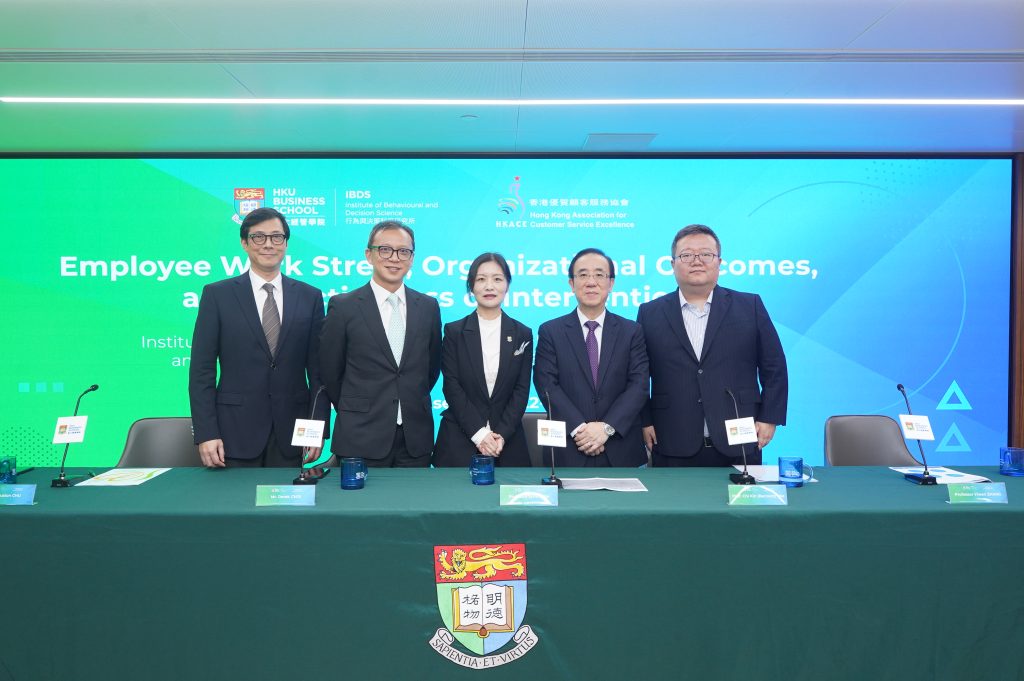
(From left) Buston CHU, Honorary Advisor of Hong Kong Association for Customer Service Excellence, Mr. Derek CHOI, Chairman of Hong Kong Association for Customer Service Excellence, Professor Echo WAN, Associate Dean and Director of Institute of Behavioural and Decision Science at HKU Business School, Professor Chi Kin (Bennett) YIM, Stelux Professor in Marketing at HKU Business School, and Professor Yiwen ZHANG, Associate Director of Institute of Behavioural and Decision Science at HKU Business School.

Professor Echo WAN, Associate Dean and Director of Institute of Behavioural and Decision Science at HKU Business School, delivers opening remarks and introduces Institute of Behavioural and Decision Science, HKU Business School.

Derek CHOI, Chairman of Hong Kong Association for Customer Service Excellence, delivers remarks and introduces Hong Kong Association for Customer Service Excellence

Professor Yiwen ZHANG, Associate Director of Institute of Behavioural and Decision Science at HKU Business School, presents research findings
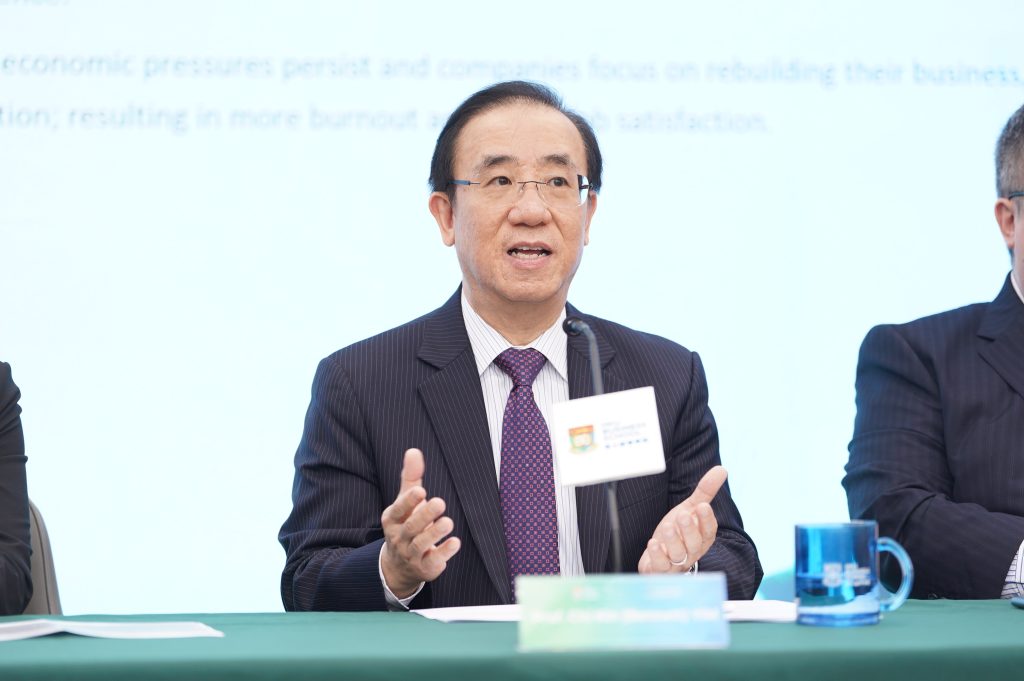
Professor Chi Kin (Bennett) YIM, Stelux Professor in Marketing at HKU Business School, shares insights and recommendation for Hong Kong’s service industry
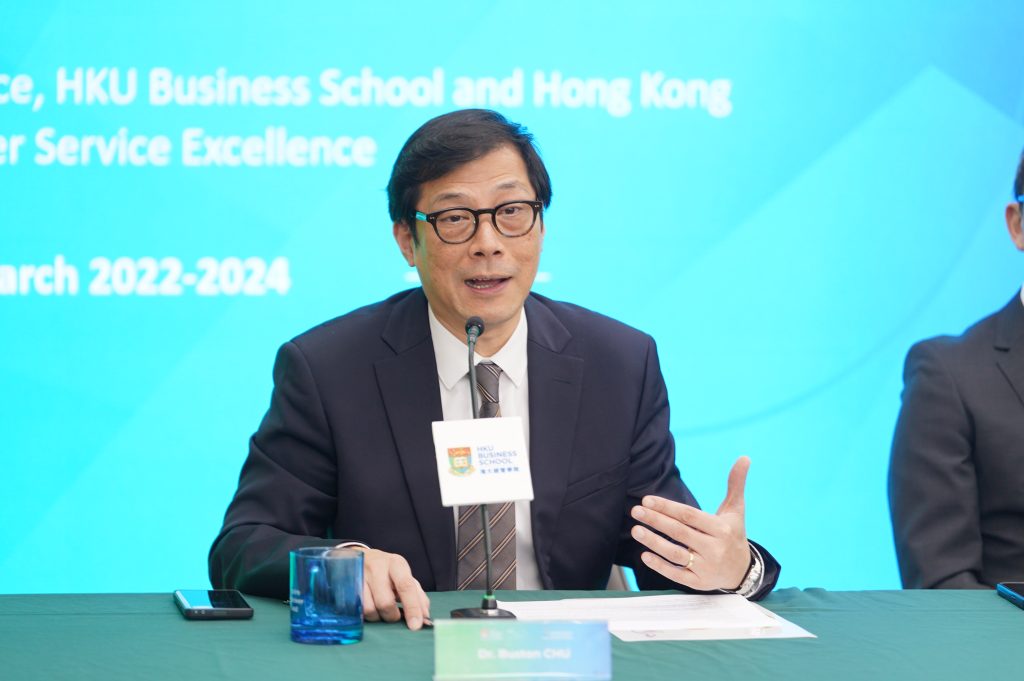
Buston CHU, Honorary Advisor of Hong Kong Association for Customer Service Excellence, shares new perspectives on Hong Kong’s service industry

Candy Mau, Assistant Director, Corporate Communications and General Administration at Canon Hong Kong, shares successful case of improving employee wellbeing and service quality
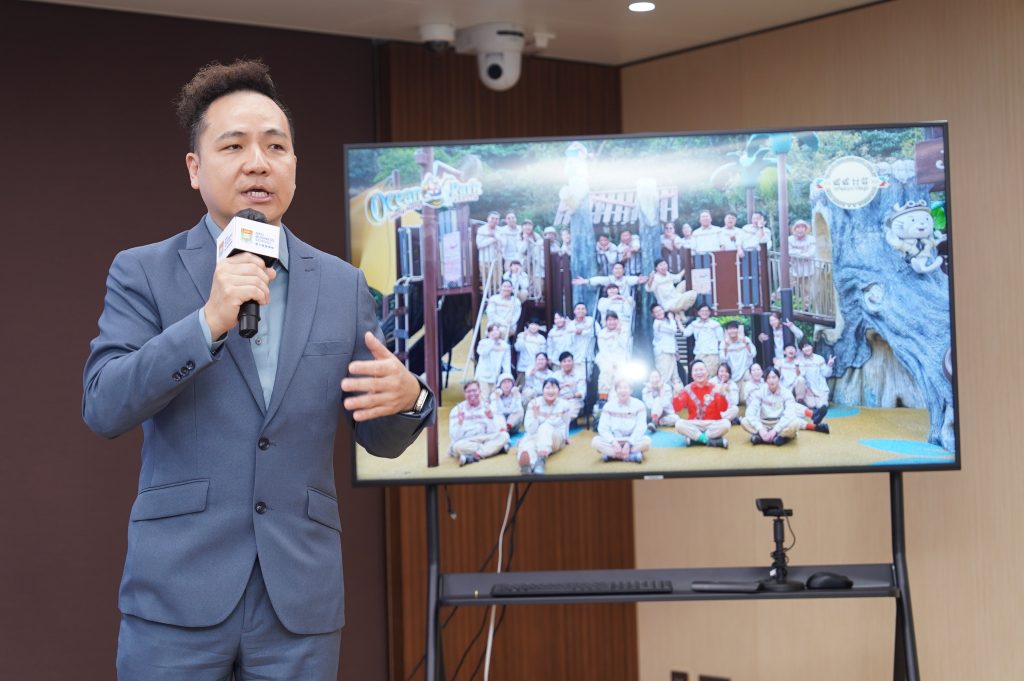
Bee Tang, Assistant Fun Learning Director at Ocean Park Hong Kong, shares successful case of improving employee wellbeing and service quality







